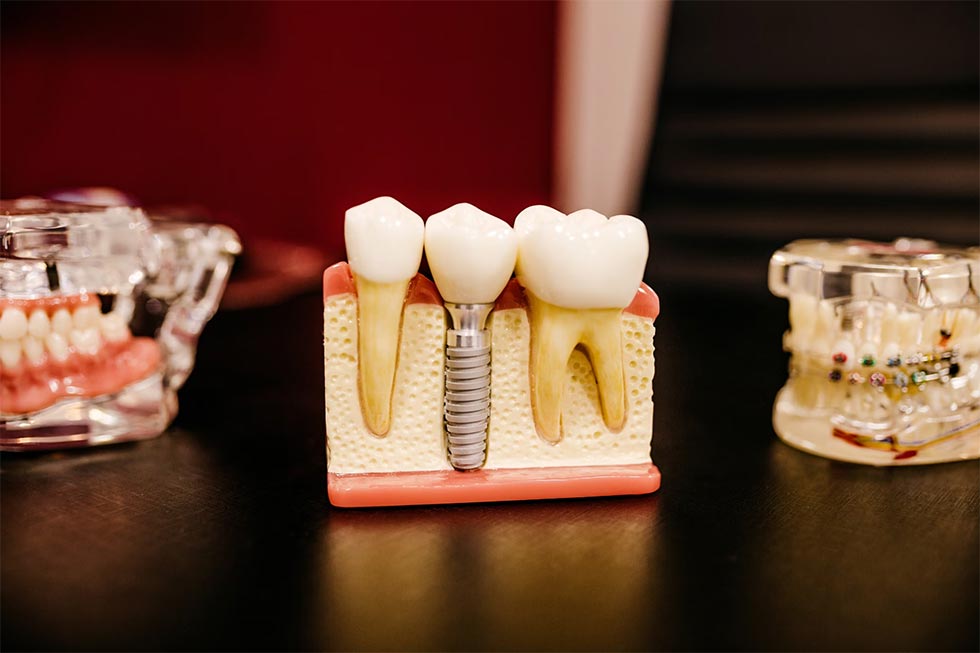A radiant smile is more than just aesthetically pleasing; it plays a crucial role in our confidence, self-esteem, and overall well-being. When tooth loss occurs due to injury, decay, or disease, it can significantly impact not only appearance but also functionality, speech, and even diet. Fortunately, modern dentistry offers a powerful solution for smile reconstruction: dental implants.
Dental implants have revolutionized the way we address missing teeth, offering a permanent, stable, and natural-looking alternative to traditional dentures and bridges. Their impact on smile reconstruction is profound, extending far beyond just filling the gaps.
The Anatomy of a Smile Reconstruction with Implants:
A dental implant is essentially an artificial tooth root, typically made of biocompatible titanium, that is surgically placed into the jawbone. Over time, the bone integrates with the implant through a process called osseointegration, creating a strong and secure foundation. Once integrated, a custom-designed abutment is attached to the implant, which then serves as the anchor for a crown, bridge, or even dentures, depending on the extent of tooth loss.
Why Dental Implants are a Game Changer for Smile Reconstruction:
- Unparalleled Stability and Functionality: Unlike dentures that can slip and slide, and bridges that rely on adjacent teeth for support, dental implants are firmly anchored in the jawbone. This provides unmatched stability, allowing patients to eat, speak, and smile with complete confidence. You can enjoy your favorite foods without restriction and pronounce words clearly without worrying about slippage.
- Natural Aesthetics: Dental implants are designed to mimic the look and feel of natural teeth. The custom-made crowns are crafted to match the color, shape, and size of surrounding teeth, seamlessly blending into your smile. This natural appearance significantly boosts self-esteem and allows individuals to smile without hesitation.
- Preservation of Jawbone Health: When a tooth is lost, the jawbone in that area begins to deteriorate due to lack of stimulation. Dental implants provide this necessary stimulation, preventing bone loss and maintaining the integrity of the facial structure. This is a critical advantage over other tooth replacement options.
- Long-Term Solution: With proper care and maintenance, including regular brushing, flossing, and dental checkups, dental implants can last a lifetime. This makes them a cost-effective solution in the long run compared to other options that may require frequent replacements or adjustments.
- Improved Adjacent Tooth Health: Unlike bridges that require the grinding down of adjacent teeth for support, dental implants are stand-alone solutions. This protects the health and integrity of surrounding teeth, preventing unnecessary stress and potential damage.
Who Benefits from Dental Implant Smile Reconstruction?
Dental implants are a viable option for a wide range of individuals, including those who have lost teeth due to:
- Tooth Decay: Extensive decay can sometimes necessitate tooth extraction, leaving a gap in the smile.
- Gum Disease: Advanced periodontal disease can weaken the supporting structures of teeth, leading to tooth loss.
- Injury or Trauma: Accidents and injuries can result in damaged or missing teeth.
- Congenital Missing Teeth: Some individuals are born with missing teeth.
The Process of Smile Reconstruction with Dental Implants:
The process typically involves several stages, including:
- Comprehensive Evaluation: A thorough examination, including X-rays and a CT scan, is performed to assess bone density and determine the best placement for the implants.
- Implant Placement: The implant is surgically placed into the jawbone under local anesthesia or sedation.
- Osseointegration: The implant is allowed to heal and fuse with the bone, typically taking several months.
- Abutment Placement: Once osseointegration is complete, an abutment is attached to the implant.
- Crown/Bridge Placement: A custom-designed crown or bridge is attached to the abutment, completing the restoration.
Conclusion:
Dental implants offer a life-changing solution for individuals seeking to reconstruct their smiles after tooth loss. Beyond restoring aesthetics, they provide unmatched stability, functionality, and long-term benefits for overall oral health and well-being. If you’re considering smile reconstruction, exploring dental implant options with a qualified dental professional could be the first step towards regaining your confidence and enjoying a healthy, beautiful smile for years to come.

